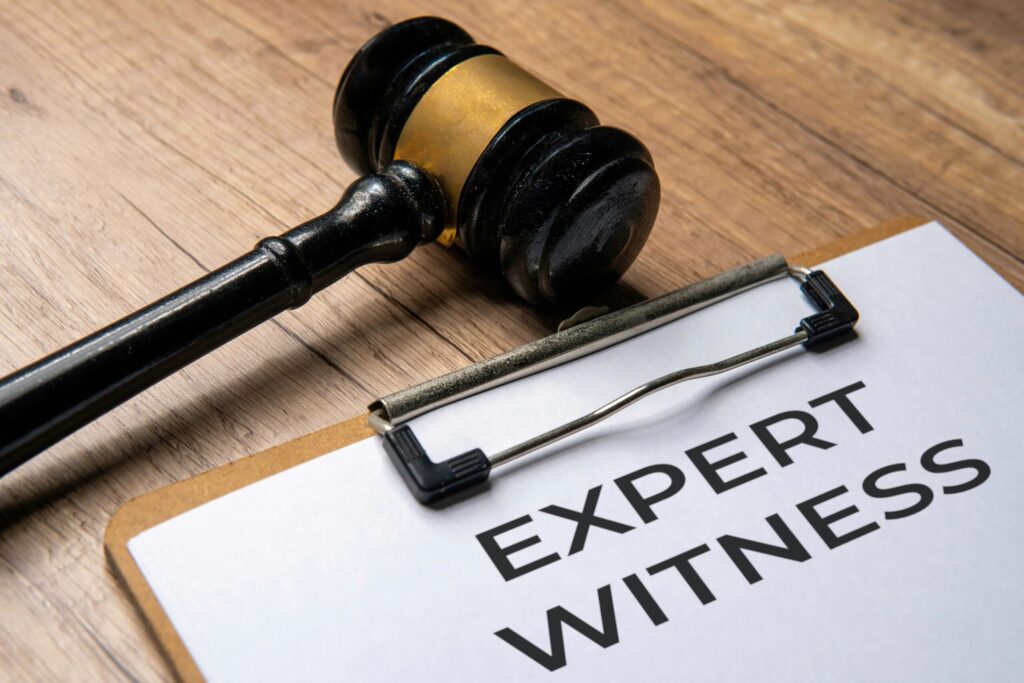Defining the Role of a Financial Expert Witness
In litigation involving financial disputes, a financial expert witness is an essential link between intricate financial concepts and the courtroom’s need for clarity. Attorneys rely on these experts to thoroughly interpret numbers, explain the nuances of damages or valuations, and demystify allegations of securities and fraud. This critical role means an expert must translate complex financial information into cogent testimony that assists judicial decision-making. To ensure financial evidence presented in court is compelling and reliable, engaging expert witness services is often the foundation of a robust legal strategy. The most effective experts interpret data and anticipate potential challenges from opposing counsel, offering insights that reinforce their clients’ legal positions.
Evaluating Credentials and Experience
Credentials are a baseline requirement for any financial expert witness. Attorneys should verify educational achievements—such as advanced degrees in finance, accounting, or economics—as well as industry certifications like Certified Public Accountant (CPA), Chartered Financial Analyst (CFA), or Certified Fraud Examiner (CFE). These credentials are not just letters after a name; they indicate deep subject-matter knowledge and adherence to professional standards. Additionally, substantial experience with similar cases—litigation consulting and live courtroom testimony—is crucial, as is a strong history of published work and participation in professional organizations. Accomplished experts tend to maintain a track record of peer recognition and positive client outcomes.
Industry Specialization Matters
Every industry has unique financial structures, regulatory requirements, and accepted accounting principles. If a dispute pertains to healthcare, real estate, manufacturing, or technology, an expert witness with hands-on experience in that particular industry can provide more relevant and persuasive testimony. For example, forensic accounting standards for banking significantly differ from those required for retail or construction. Industry specialization ensures the expert can accurately apply the right methodologies and contextual frameworks, strengthening the attorney’s case and minimizing the risk of misunderstandings in court.
The Value of Strong Communication Skills
Technical knowledge alone is insufficient if an expert cannot communicate effectively with a diverse audience—judges, juries, and attorneys alike. Ideal financial experts are characterized by a rare ability to distill jargon-intensive analyses into logical, persuasive explanations that specialists and laypeople can understand. Whether through written reports or oral testimony, clarity, patience, and demonstrated teaching skills are vital. According to a recent Forbes Business Council analysis, financial experts who can articulate findings concisely are far more likely to influence judicial outcomes in their favor.
Objectivity and Impartiality as Crucial Factors
- The credibility of a financial expert rests on their ability to maintain objectivity and impartiality at all times.
- Courtroom credibility is often tested during cross-examination—unbiased testimony is less likely to be discredited.
- Effective experts are forthcoming about the strengths and weaknesses of their analyses, ensuring attorneys are prepared—even if findings are not always favorable.
- Attorneys should prioritize financial expert witnesses who can defend their findings firmly without showing partiality to any party in the dispute.
Assessing Reputation and Courtroom Presence
An expert’s professional reputation can play a decisive role in how their testimony is perceived. Seasoned financial experts often come highly recommended by peers, with references that attest to technical competence and courtroom composure. Attorneys should ask about—or witness firsthand—the expert’s ability to remain calm under pressure, answer pointed questions clearly, and project unwavering credibility. A composed, personable witness educates and builds trust with the judge and jury, often leaving a lasting impression that can tip a case.
Preparing for Daubert and Other Legal Challenges
Courts rigorously evaluate expert testimony based on standards like Daubert, which emphasizes reliability, validity, and relevance of the methods used by the expert. Attorneys must collaborate closely with financial experts to ensure their analyses follow accepted practices and are supported by reliable data and widely accepted literature. Transparency in concluding, documenting assumptions, and citing authoritative sources are best practices for surviving Daubert and related challenges. Those who invest in preparing for such scrutiny can better anticipate and overcome evidentiary objections.
Choosing with Confidence
Selecting the right financial expert witness requires a blend of due diligence and informed judgment. Focused attention should be paid to proven credentials, relevant industry experience, exceptional communication skills, and steadfast integrity. By thoroughly vetting financial experts along these criteria, attorneys can enhance both the effectiveness of their legal strategy and the fairness of court proceedings. Thoughtful selection improves odds in the courtroom and strengthens trust in the overall process of justice.
Read Also: techinfobusiness.com



